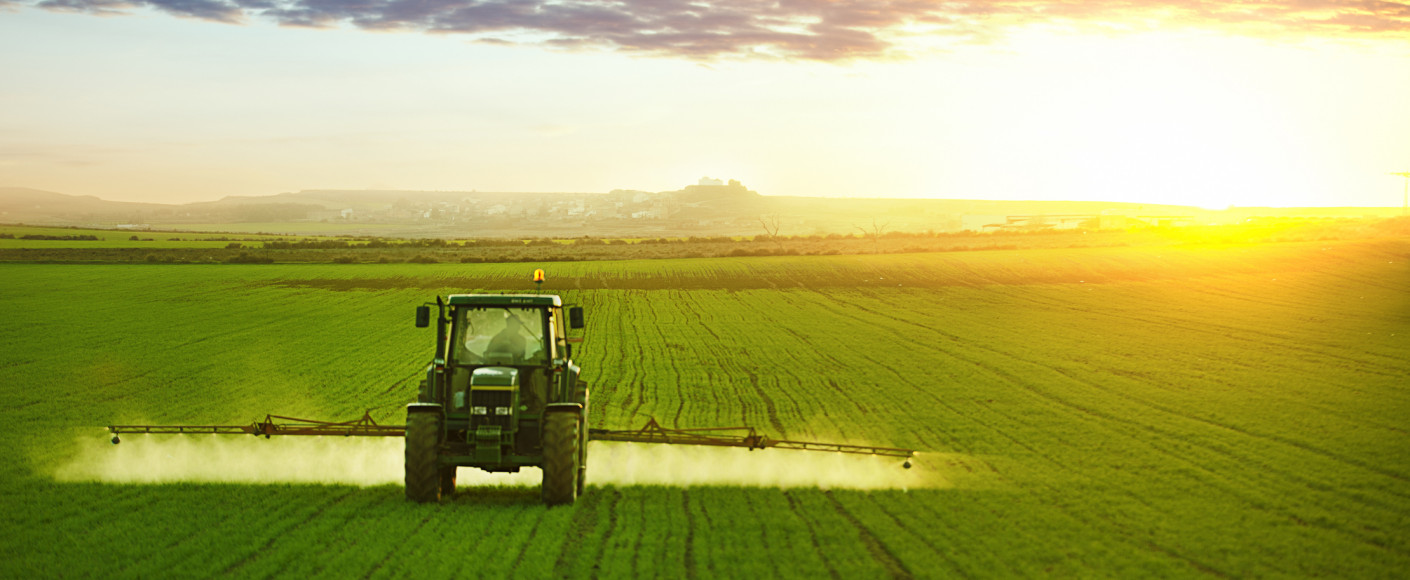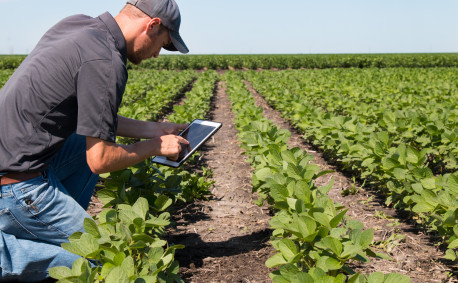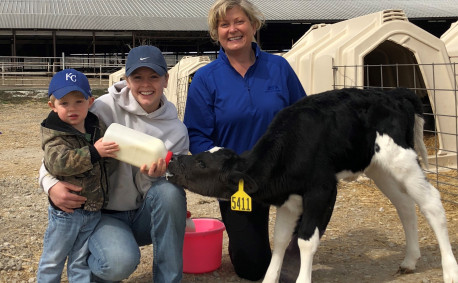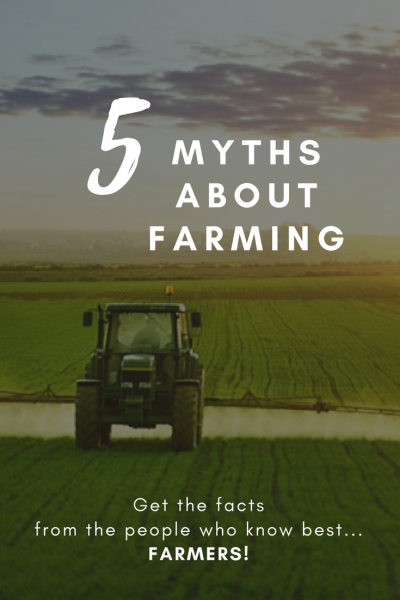Five Farming Myths
If I say “farmer” what image pops into your mind? Maybe you picture an old man wearing overalls and sucking on a bit of straw. That’s what a lot of people think. But there are a lot of disconnects between what we see in movies and what actually happens on the farm. So, we compiled some of the most common myths we’ve heard about farming and gotten the actual lowdown from some awesome Kansas farmers.
1. Farmers Are Uneducated Bumpkins
Sure, some farmers wear overalls. And some enjoy sucking on a piece of fresh, raw wheat. But the stereotype ends there.
“A lot of people say, ‘I’m just a farmer.’ I think that’s done a disservice to kids wanting to become farmers. When I grew up, being a farmer was a point of pride,” says Adam Baldwin of McPherson County.
Nearly 30 percent of today’s farmers have attended college, and an increasing number are pursuing graduate degrees, mainly because of the increasingly complex job of growing food (and many other things, see below) for a hungry world.
Like any small business owner, farmers wear many hats. They are accountants, lobbyists, marketers, agronomists, scientists, mathematicians and even volunteers in their communities. They have to be adept and adaptable to successfully run a farming operation.
“You’re everything as a farmer. A lot of kids aren’t interested in pursuing agriculture because they don’t think it’s glamorous or exciting. The reality is, it’s super exciting and requires a lot of skills. It’s very challenging,” says Adam’s wife Kim.
2. Farmers Drench Their Crops in Chemicals
Yes, farmers spray chemicals on their crops, but it’s far from the horrific “zombie food” (as Kyler Millershaski from Lakin puts it) that some people make it out to be.
Farmers only apply what they have to in order to keep their plants healthy. This shakes out to a couple of ounces of chemical per acre. It may look like a lot more because that tiny bit of chemical is diluted with gallons and gallons of water. The fact is, farmers only use about one to two shot glasses worth of chemical across an area the size of a football field.
Plus, the chemicals they use are highly targeted. Herbicides and pesticides are specially formulated to fight specific weeds and insects, not animals or humans. Think of the formula like a house key, Kyler says. Sure, you might be able to put a key into a bunch of different locks, but it will only turn and open the one it’s designed for.
“I don’t want to put a product out there that I’m not proud of, that isn’t a high quality product, that isn’t sustainable, can’t produce for years to come, or something that I wouldn’t consume myself,” Kyler says.
3. Farming Ruins Soil and Is Bad for the Environment
Yes, farmers are always concerned about the current year’s harvest, but they take a (very) long view of food production. Their operations are businesses that don’t end after a single season. In fact, many farms in Kansas span multiple generations. Without taking care of the soil and implementing conservation practices, their businesses and the land they are built upon wouldn’t survive.
The Winsors of Northeast Kansas use multiple sustainable farming practices on their farm.
“Grid sampling, prescription-based farming, GPS, seed spacing and depth, GMO seeds, optimally using inputs, soil health, conservation practices — these are just a few examples of technologies we use on our farm,” says LaVell Winsor on her blog, Growing for Tomorrow. “Is it about making a profit? Absolutely, our farm is a small business that supports three families along with some occasional hired help. Is our farm also about leaving the land better than it was before? Yes. Our family has farmed much of our land for over 50 years.…We are raising the fourth generation on the farm right now.”
4. Farms Are Run by Industrial Food Corporations
Farms are businesses. And just like with any business, there are different ways to structure a farming operation. Many farmers opt to incorporate their farms. But this does not mean they are large corporations.
“Our farm was incorporated. It’s a corporate farm,” says Austin Heiniger of Heinco in Fairview. “But it’s a family-owned business. The shareholders are my parents and brothers.”
They make all the decisions and run the operation themselves. But by becoming incorporated, their farm can help protect itself.
“It’s no different from what any small business owner would do,” Austin says. “It’s just good business.”
5. Farming Is All About Food
Yes, milk comes from dairy cows and eggs come from chickens. But, there’s a lot more that can be traced back to the farm.
“So many people think that all we do is feed people,” says Emily McVey of McVey Farms in Wilson County.
Just a few examples of common items that have roots in Kansas agriculture:
- Candles, lip balm, and turf foam come from soybeans.
- Toothpaste has a small amount of beef.
- Charcoal is derived from corn.
- Gum contains wheat byproducts.
In some respects, farming is like a lot of other jobs. Farmers face the same issues — making sure business is profitable and their families are taken care of. They are parents, siblings, children working together to build a future for their families and the rest of us. They often have to fight back against inaccurate information, but now you’ve got the straight scoop on how they get that job done!





